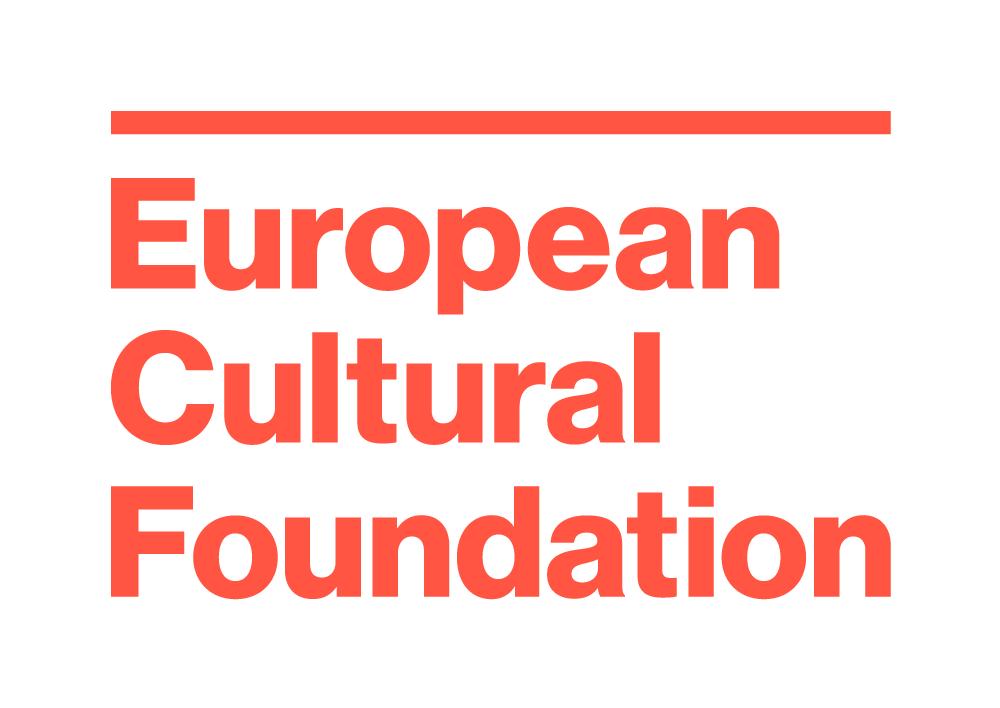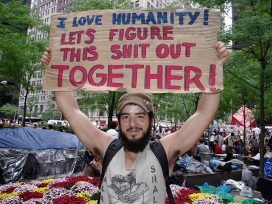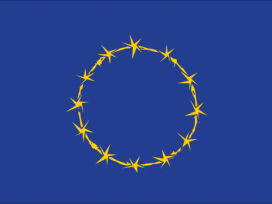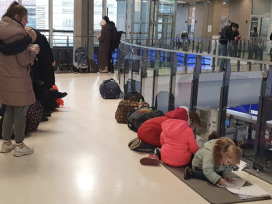Eastern European states are expected to renounce their post-totalitarian victim status and re-gained national homogeneity in order to show solidarity with western Europe in the refugee question. No wonder that they resist, writes Slavenka Drakulic.
The constant meetings of EU leaders concerning the refugee crisis in Brussels have not so far yielded any solutions. Decisions and documents, yes, but the question remains how many of these are going to be implemented in reality. One of the reasons is that former communist states in eastern Europe are more or less openly defying a common approach, in particular the sharing of the burden of refugees through quotas.
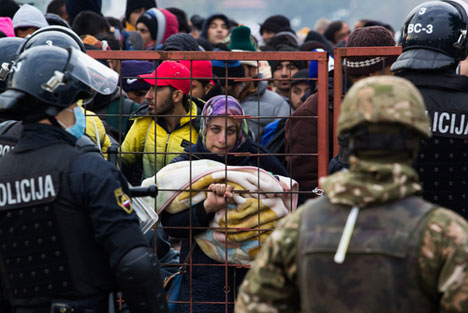
Slovenia, 25 October 2015. Photo: Janossy Gergely/Shutterstock.com. Source: Shutterstock
Until recently it seemed that eastern and western Europeans were getting closer, that the new EU member states were slowly adapting to western democratic standards not only in form, but also in practice and mentality. But the refugee crisis has demonstrated how deep the division among Europeans still is. Hungary, Czech Republic and Slovakia reject quotas, Bulgaria was first to build a fence along its border with Turkey, Romania is not offering refugees safe havens either, and Slovenia and Croatia claim lack of capacity, while also lacking the will to keep them. It looks as if Poland, with its newly elected government, will reinforce this defiance. Not to mention countries outside the EU: if Serbia and Albania are willing to perhaps show a kinder face to refugees while guiding them towards western borders, it is with an eye on possible membership of the Union. Macedonia is in the worst situation, penniless, overrun and desperate. It is obvious that these states are not very eager to, or capable of, demonstrating solidarity, to say the least.
In the West, however, there is a certain surprise at this sometimes demonstrative refusal to share responsibility. Until yesterday these very countries were themselves in need and the EU helped them by pouring in billions. Why, then, such behaviour? Western bewilderment is, of course, hypocritical, considering that Germany and Sweden in generously welcoming refugees are exceptions rather than the rule. But even if many countries in the West are not in agreement with these two exceptions, historical reasons for resisting refugees are still quite different in the West than in the East.
There is no single answer to the question why former Communist states are now showing their unpleasant side – but just to put it into perspective how difficult the answer is, we should remember that there is no harmony even between eastern and western Germany. When former Communist states joined the EU, they expected to get much more than they actually got. Besides freedom, democracy and human rights, citizens expected a better life, of the kind they saw in western TV advertisements. What they expected of “Europe”, i.e. the West, was justified by several reasons. For example, that they were Europeans too, now returning to where they naturally belong after decades of Soviet occupation. But the most important reason was their suffering under totalitarianism. Because of that, they deserved the status of victims of History, something that the West, meanwhile busy developing and getting rich, should never forget. As mere recognition of their victimhood was not enough, some kind of compensation for suffering was expected. Indeed, financial aid from the West was interpreted as a payment of an historical debt. Last but not least, has the West already forgotten that some of the former Communist states, now resisting the wave of Muslim refugees, spent centuries under the Turkish, that is, Muslim rule? And often fought the Turks in war, as they saw it, protecting Christian Europe?
One could claim that the psychology of the victim is still very much alive, if for no other reason than because calling upon this status could still bring material benefits. But the truth is that the victims of Communism now have serious competitors: war refugees arriving from the Middle East and Africa. The fact is that these new victims, mostly Muslims arriving in frighteningly high numbers, makes solidarity even more difficult for eastern Europeans. Therefore the victims of yesterday do not feel responsible for them.
This fear of foreigners is yet another element of difference between East and West, making easterners not only ungrateful but also xenophobic, if not racist. It wasn’t long ago that Yugoslavia fell apart in wars for nation-states. Czechoslovakia became the Czech Republic and Slovakia; Romania has a problem with the huge Hungarian and Roma ethnic minorities; Bulgaria even before 1989 tried to turn their Turks into Bulgarians by administrative measures and Hungarian violence towards its Roma minority is even more shameful as it has gone unpunished by the EU for years. The reason for such behaviour is the desire to build sovereign and homogenous nation-states with as few minorities as possible. While the EU united and developed multiculturalism, eastern Europe went through just the opposite process of disintegration.
However, one should recognize the very important role played by national awareness, language and religion under totalitarianism in order to preserve national and cultural identity. The Soviet tendency was to erase it. It is only against this background that one could understand that the idea of accepting and integrating foreigners will cause people anxiety. Did they finally become independent from the bloc, separate or fight wars with neighbours in order to receive complete strangers? Now, when they finally have their own states, they are expected to renounce their victimhood and national homogeneity in order to show solidarity? No wonder they resist. “Hungarians are not going to accept any change to their culture because they do not want parallel societies like in some countries with big numbers of migrants from Muslim states”, Viktor Orbán says. Even if morally unacceptable, in this context his reaction is at least understandable. There is little chance that the western part of the Union would understand such arguments. More likely, it will seek to impose measures on the back of threats. But if such measures are to be implemented – this would be an entirely different matter.
In the East and West alike, citizens are turning towards right-wing political parties and movements. Their popularity is growing. Even in far away Latvia, right-wingers are gaining popularity with anti-immigrant slogans. An interesting argument surfaced there: Brussels, by imposing quotas, behaves just like Moscow a long time ago when tens of thousands of Russians were sent to Latvia and Estonia to settle there. In Poland, the victory of the Law and Justice party under Jaroslaw Kaczynski, who is skilful at playing on popular sentiments about national victimhood, will surely not make EU decisions any easier. Still, understanding the reactions and behaviour of former Communist states and their collective trauma is necessary if Europe is to remain together.
Published 4 November 2015
Original in Croatian
First published by Jutarnji list, 31 October 2015 (Croatian version); Eurozine (English version)
© Slavenka Drakulic / Eurozine
PDF/PRINTIn collaboration with
In focal points
- Disintegration or revival?
- Mobilizing law for solidarity
- Solidarity after Machiavelli: An interview with Ira Katznelson
- Liberalism, populism and the challenges of post-transformation in eastern Europe and beyond
- The limits of solidarity
- On the borders of solidarity
- The crisis of neoliberalism in Europe
- Utopian dreams beyond the border
- The politics of nature in the Anthropocene
- Strangers when we meet: Identity and solidarity
Newsletter
Subscribe to know what’s worth thinking about.
Related Articles

Do the violence and oppression against Palestinians in Gaza and the discrimination and surveillance against migrants trying to cross European borders have more in common than meets the eye? A Belgian activist of the international Freedom Flotilla Coalition speaks out about the Israeli arms industry, institutionalized violence and human rights abuses.

Despite divisive nationalist politics, there are those who manage to overcome the odds, forming meaningful acts of solidarity. Eurozine’s new focal point ‘The world in pieces’ looks critically at what divides, tackling the complexities of destablized identity.
